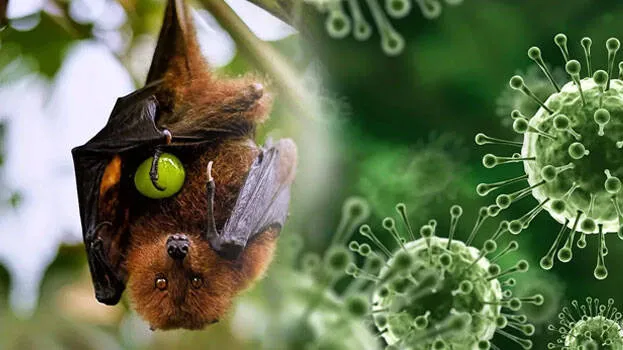Science
India Develops Innovative Pseudovirus Test for Nipah Detection

The Institute of Advanced Virology (IAV) in Thiruvananthapuram has successfully developed a pseudovirus test system capable of detecting the Nipah virus in both humans and animals. This groundbreaking test identifies antibodies to the virus, even in asymptomatic individuals, marking a significant advancement in the country’s response to this infectious disease. Currently, the only available method for confirming active infections is through RT-PCR testing.
The initiative to create this blood test kit began in 2023, with testing conducted on samples from individuals infected with Nipah in Malappuram. Recent samples were also collected from Palakkad to enhance the research. This project was undertaken in collaboration with the Department of Microbiology at Kozhikode Medical College, under the guidance of IAV Director Dr. EV Sreekumar.
Collaboration and Surveillance Efforts
To bolster public health measures, the IAV has initiated zero surveillance studies in areas affected by Nipah. These studies aim to detect asymptomatic carriers of the virus among both humans and animals. This collaborative effort involves multiple stakeholders, including the state health and animal welfare departments, focusing on early detection and prevention strategies.
During a statement regarding the new test, Minister Veena George emphasized the importance of the Virology Institute’s work. “The efforts of the Virology Institute are strengthening Kerala’s efforts in combating infectious diseases,” she said. The development of the pseudovirus test represents a crucial step forward in public health, particularly in regions where Nipah outbreaks have previously occurred.
Nipah virus poses significant health threats, with transmission occurring through direct contact with infected animals, such as bats and pigs, or through human-to-human contact. The symptoms can range from mild respiratory issues to severe neurological complications. The ability to identify asymptomatic carriers could play a vital role in controlling potential outbreaks and ensuring timely medical intervention.
As the IAV continues its research and development efforts, the pseudovirus test is expected to enhance diagnostic capabilities, ultimately contributing to better public health outcomes in Kerala and beyond. The collaboration between health departments and educational institutions highlights the importance of combining resources and expertise in the fight against infectious diseases.
-

 World5 months ago
World5 months agoSBI Announces QIP Floor Price at ₹811.05 Per Share
-

 Lifestyle5 months ago
Lifestyle5 months agoCept Unveils ₹3.1 Crore Urban Mobility Plan for Sustainable Growth
-

 Science4 months ago
Science4 months agoNew Blood Group Discovered in South Indian Woman at Rotary Centre
-

 World5 months ago
World5 months agoTorrential Rains Cause Flash Flooding in New York and New Jersey
-

 Top Stories5 months ago
Top Stories5 months agoKonkani Cultural Organisation to Host Pearl Jubilee in Abu Dhabi
-

 Sports4 months ago
Sports4 months agoBroad Advocates for Bowling Change Ahead of Final Test Against India
-

 Science5 months ago
Science5 months agoNothing Headphone 1 Review: A Bold Contender in Audio Design
-

 Top Stories5 months ago
Top Stories5 months agoAir India Crash Investigation Highlights Boeing Fuel Switch Concerns
-

 Business5 months ago
Business5 months agoIndian Stock Market Rebounds: Sensex and Nifty Rise After Four-Day Decline
-

 Sports4 months ago
Sports4 months agoCristian Totti Retires at 19: Pressure of Fame Takes Toll
-

 Politics5 months ago
Politics5 months agoAbandoned Doberman Finds New Home After Journey to Prague
-

 Top Stories5 months ago
Top Stories5 months agoPatna Bank Manager Abhishek Varun Found Dead in Well









